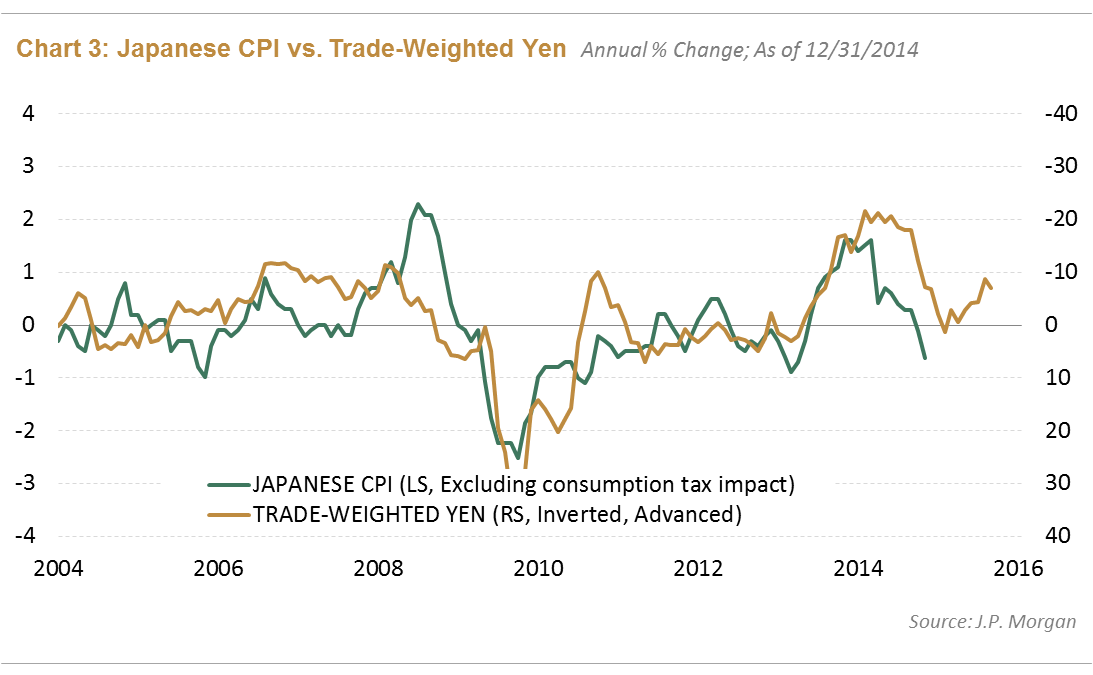RealClearPolitics Articles How Inflation and Profits Play Into Government Hands
Post on: 18 Май, 2015 No Comment

How Inflation and Profits Play Into Government Hands
Webster ‘s defines inflation as a substantial rise in the general level of prices related to an increase in the volume of money and resulting in the loss of value of currency. With oil up 118 percent in dollars since the summer of 2001 versus 40 percent in euros, it’s apparent that the United States has been inflating to some degree.
When inflation reveals itself, there’s a flight to the real, or, as economist Reuven Brenner has said, people hedge falling currency values through investment in tangible items such as real estate, gold, art, stamps, coins, (and) foreign currency. Oil is an investment that always performs well during times of rising inflation. George Gilder once referred to these investments as sinks of purchasing power, which divert investment away from productive use. If I buy gold or a home, I do just that. If I buy a mutual fund, I provide capital to tomorrow’s entrepreneurs. Sadly, the inflation story gets worse when we consider how it plays directly into the hands of governments. A recent Wall Street Journal story by Russell Gold and Bhushan Bahree shows us how.
As Gold and Bahree put it, while the doubling of oil prices in the past few years has led to enormous windfalls for oil companies, those record profits are likely to recede in the years ahead as oil-producing nations increasingly demand a bigger share of the wealth. The exploration deals being signed today aren’t nearly as lucrative as in the past, with many simply offering oil companies exploration fees with little to gain if oil prices soar. Worse, countries like Algeria and Venezuela have altered existing contracts to claw back some of the profits from high oil prices of recent vintage, meaning oil’s rise in recent years will not accrue as much as many thought to the bottom line of oil companies. Such is the problem with profits that come from the earth, not to mention inflation-driven investment shifts toward the real.
Since oil fields have a distinct physical location, it’s tautological to say they can’t be moved, and that the companies that explore these fields are ultimately at the mercy of the government that controls their exploration rights. There’s no moving one state or country over as it were when it comes to commodity exploration and investing. In other words, nations with significant oil reserves have the upper hand when it comes to taxation. Just as Venezuela has ripped up past exploration contracts, Libya was recently able to command a 90-percent share of profits for future exploration rights in its fields from Gazprom — a bid ExxonMobil lost for only offering up a 75-percent share. And it’s not just socialist governments that are reaching into the pockets of oil companies. Alongside Venezuela’s increased royalties on production, the U.S. and Britain have both increased their offshore royalty and tax rates in an effort to capture the windfall profits that their politicians frequently decry. As Kerry Dolan wrote in Forbes. you drill a dry hole, the money you lost was yours. If you make money, the government declares that it is a windfall and snatches it. Profits evidently aren’t bad if they’re intended for governments.
The same concept applies to real estate. Just as commodities exploration flourishes amidst inflationary episodes, so do people hedge their savings through real estate purchases. Much is made of Texas not having an income tax rate, but one reason it doesn’t is due to high property taxes that rise with the value of home prices there. Much as real estate rallied during the inflationary presidencies of Richard Nixon and Jimmy Carter, property values have risen impressively in recent years amidst the dollar’s fall. As economists Ed Glaeser and Joe Gyourko note, Houses don’t walk, which means that governments immediately benefit from rises in the value of property.
Worse, as English economist Andrew Oswald has noted, Wherever people seem particularly keen [about home ownership] — as in the United Kingdom, Spain, and some U.S. states — employment suffers as a result. Oswald points out that across European countries, and across U.S. states, high levels of home ownership are correlated with high levels of unemployment. Realistically, people recognize their homes as their primary asset, and — eager to hold onto their main asset — find themselves in jobs not well matched with their skills. While the loss of productivity that results from underemployment is impossible to quantify, the reality that homes don’t move means that governments have a regular source of income that rises when the value of currencies falls.
Returning to Reuven Brenner, he argues that, If people expect their governments to be run by kleptocrats who will use their powers to make arbitrary changes to the rules along the way, they will risk far less capital. Governments ultimately control the value of money, and when it’s devalued, a theft has occurred. Governments that use their devaluation powers to thieve with one hand, while using the other hand to expropriate the somewhat illusory profits that result from their original thievery, will soon see investment capital shrink, and they’ll have a smaller economic pie to tax altogether.
John Tamny is an editor at RealClearMarkets. He can be reached at jtamny@realclearmarkets.com.














